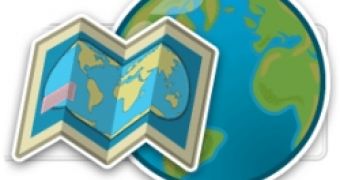Mapping the world online poses a lot of different challenges not only from a technical perspective but also from a political one. Google has some of the best software engineers in the world so it's safe to assume they can tackle any technical issue to overcome and, for the most part, so far they have. Some problems, though, are a little more tricky and don't have anything to do with the actual product, but with trying to satisfy all the different views, customs and opinions of the people around the world.
One problem that arose time and time again when creating Google Maps was how to handle regions or geographical features on which different countries had different and a lot of times conflicting views. One common issue is with water bodies that regularly have different names in the countries bordering them or which they cross. Google exemplifies with the “Yellow Sea” as it's known in the English-speaking world. However, in China, it is known as “Huáng Hǎi” and in Korea it is known as the “West Sea” or “Sŏ Hae” in Korean.
Google handles this by showing both labels in the English or other international versions of Google Earth and Maps. In Earth, there is also a text box explaining the existence of the two names. However, the local versions of the service will show the preferred version of the name for each region, but, in order to ensure that users still know that there are alternative namings, they will also show the other versions in a “political box.”
Things get a lot more heated when it comes to disputed borders. These types of squabbles are common-place and Google wants to make sure that it keeps a neutral stance, as it aims to be an authoritative resource, but also appease the local governments. Google handles this in a similar way as before by acknowledging that the borderline is disputed and by showing in localized versions of Maps and Earth the border which the respective country claims is correct. Even with all its precautions, Google can still manage to get in trouble, as we found when the company stirred a lot of criticism in India for mislabeling some cities in a disputed region by the Chinese names and fonts. Google claimed it was an error and not a deliberate decision, but it showed that these issues could be very sensitive.

 14 DAY TRIAL //
14 DAY TRIAL //